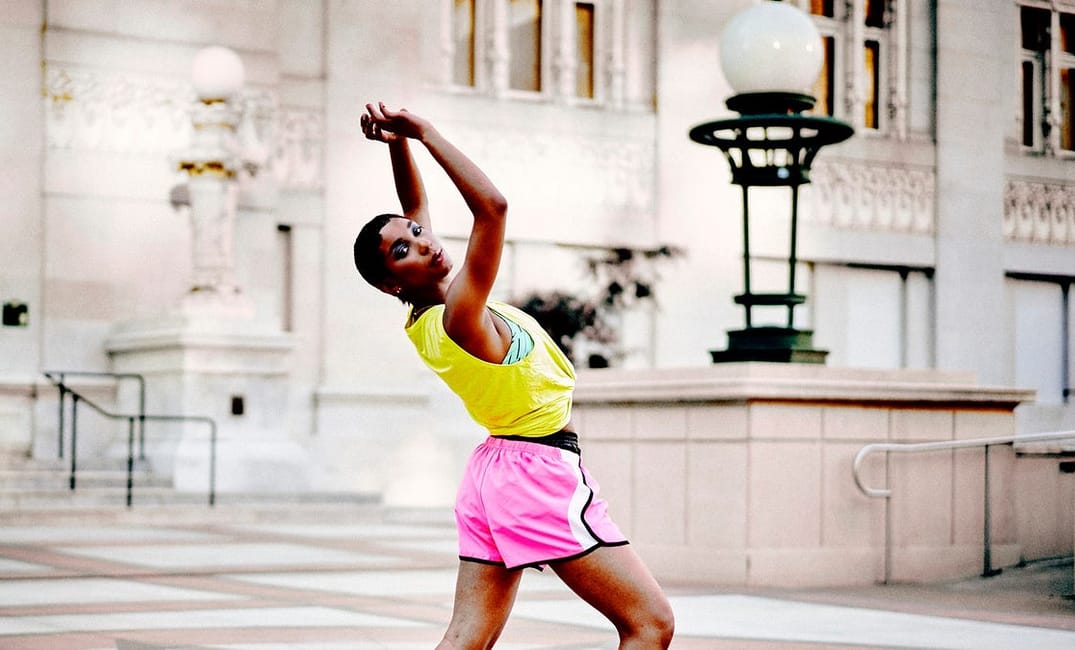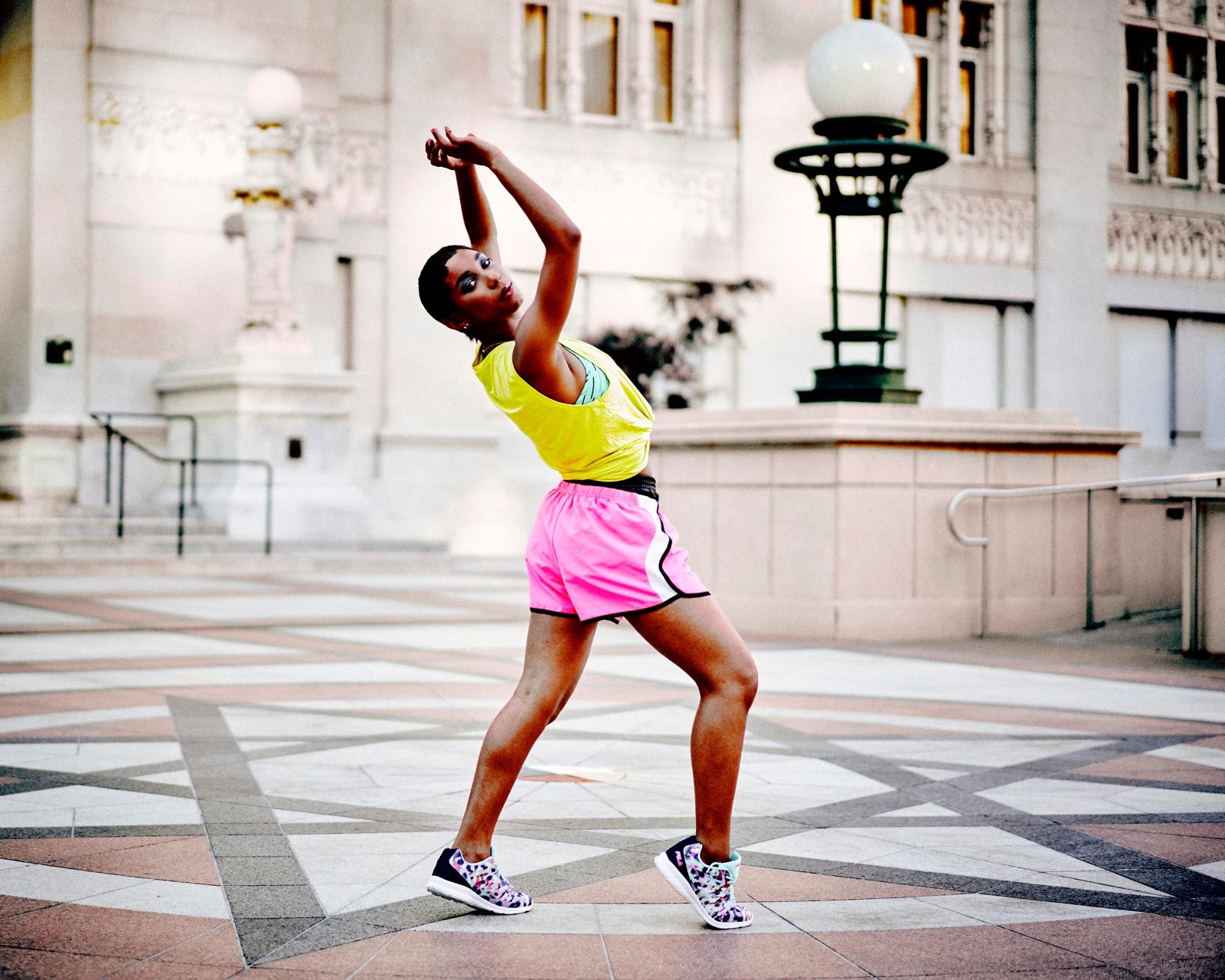
By Raj Bandyopadhyay and Janet Pak
Women’s bodies have always been policed and politicized — and Black women’s bodies even more so. In particular, Black people’s natural Black hair has historically been deemed unprofessional, unattractive, or even unclean by our racist society. In turn, an entire industry of hair products and treatments targeting Black women urges them to spend a lot of time and money to conform to the white ideal of sleek and straight hair.
As creatives operating in the beauty and fashion industries — Raj Bandyopadhyay, a bicoastal photographer, and Janet Pak, a fashion guru curating wardrobes for films — we’ve seen the damage done by the industry shunning anything different from what’s seen through a white lens. We’ve noticed hair professionals unprepared to deal with Black hair texture or various people forcing a certain look on Black models.
We wanted to dedicate our time and energy to celebrate Black women in the Bay Area and showcase their beautiful natural hair through this photo essay.
Sign up for The Bold Italic newsletter to get the best of the Bay Area in your inbox every week.
Sara
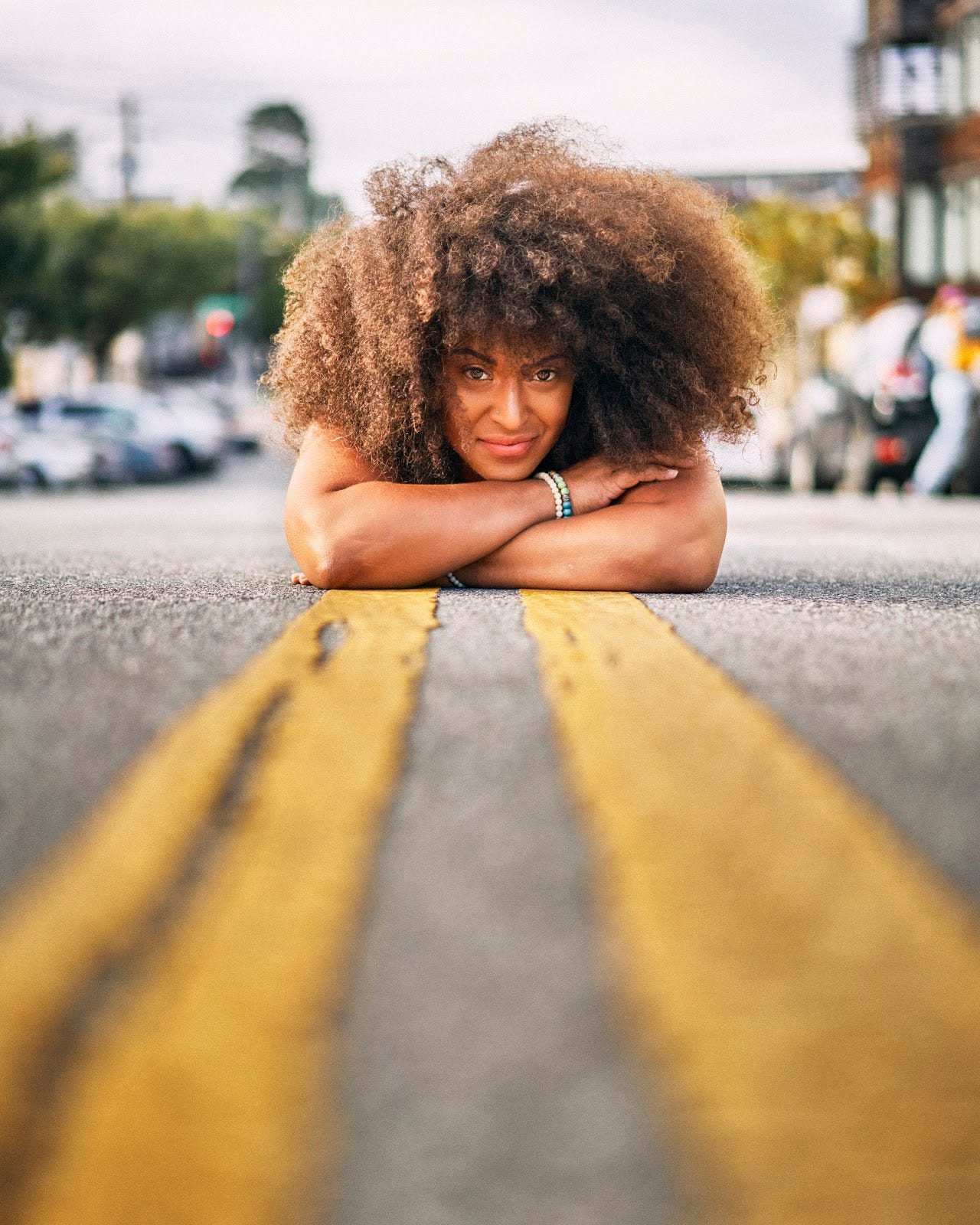
“I will not draw attention to myself.”
When she was 10, Sara Anders had to write this sentence 1,500 times in the principal’s office as a punishment.
Her egregious offense? Going to school in her natural hair.
In the all-white school in the all-white Oregon town where she grew up, Sara’s hair was deemed an unforgivable distraction by her teachers and principal. It took her two full days to write those sentences. She was forced to miss class during that time. More than two decades later, Sara still has the scars from the calluses she got on her hands.
Having her hair completely natural is really important for Sara, both as a protest against those who shamed her for it as a child and as a way to experience her freedom and power.
We picked a playground as a location for her shoot. Sara took the opportunity to relive her childhood trauma, and after the tears were shed, she frolicked around the playground, reliving the childhood innocence that is often denied to Black women in America.
Posing across the double yellow lines on the road spoke to Sara as a biracial Black woman: “I’m always told I need to choose one side or the other, but here, I am in the middle.”
Galen
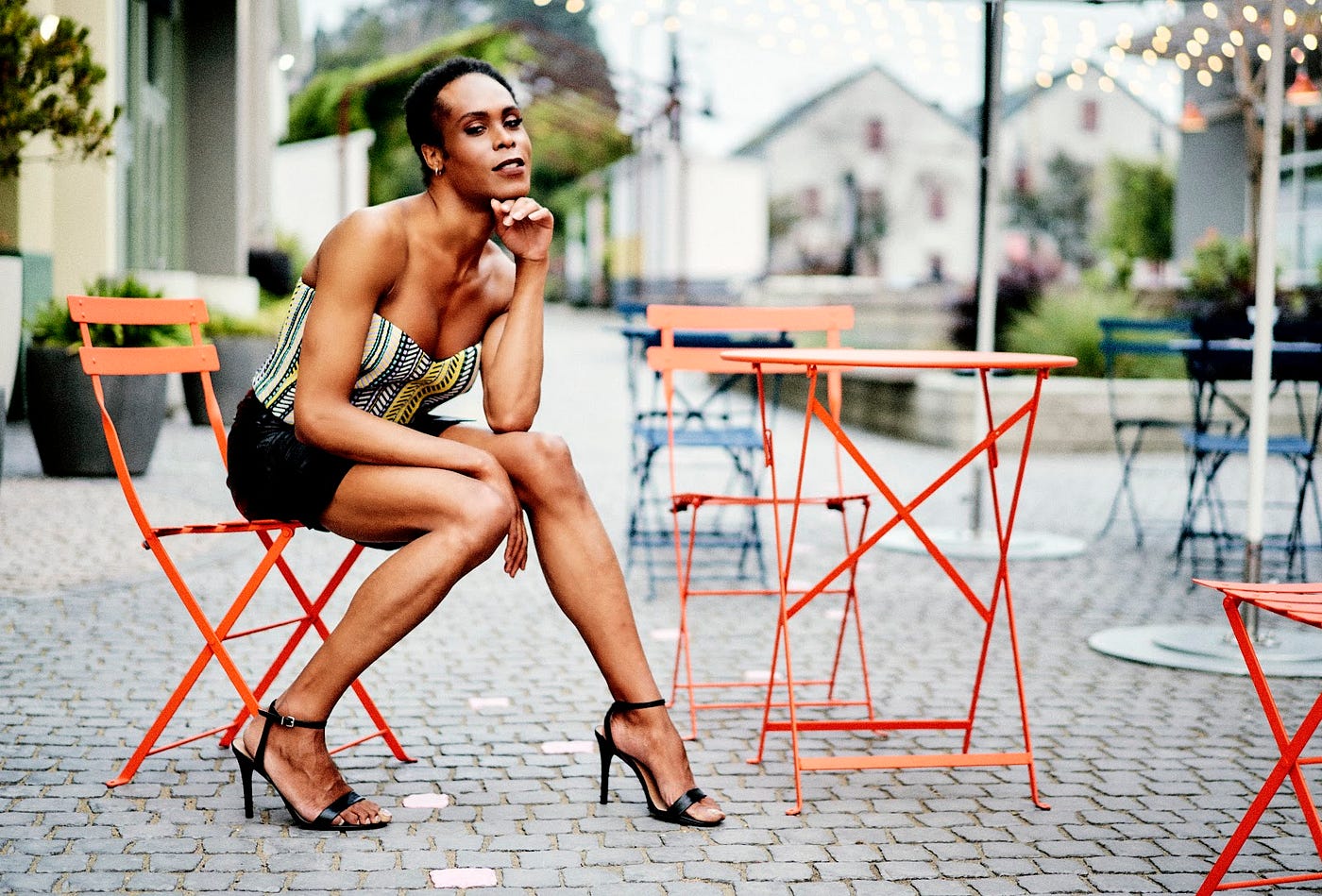
Galen Taylor recently cut her hair short for a fresh start.
As a transgender woman, she had a long journey from body dysphoria to acceptance. She wanted to embrace her curly Afro and be the natural woman she has always been. Prior to her modeling career, Galen worked in the financial industry. Because she so frequently had to be perfectly done up at work, she wanted to embrace a more simple, natural look.
Previously, Galen spent countless hours on all kinds of heat treatments to keep her long tresses straight and shiny — not to mention pounding on layers of makeup and maintaining fake nails.
Since wearing her natural hair, Galen’s modeling and acting career has blossomed. She receives more castings now than she did when her hair was long and straight. It has led to an increased self-confidence in how she carries herself that she hadn’t felt before. Galen hopes her story inspires others to embrace themselves as they are.
“Be the person you are meant to be no matter what others think you should be,” Galen says.
Bianca
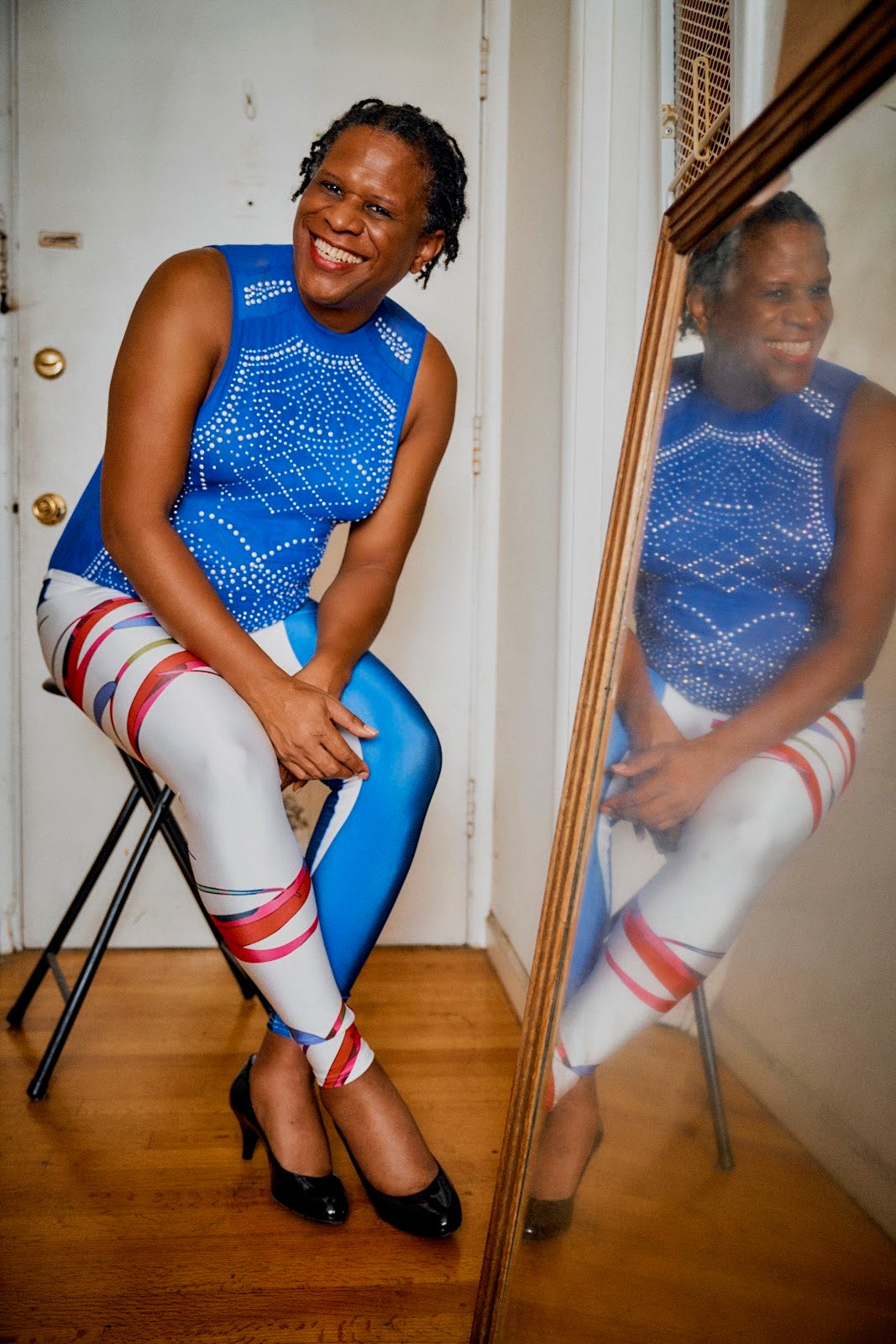
For Bianca Crown, her natural hair hasn’t been a smooth journey to acceptance.
For years, she didn’t know how to take care of it or who to turn to for advice. Jheri curls became popular when Bianca was in the 12th grade, and she used many, many products to keep them fresh. The constant use of chemicals affected her scalp and became another challenge to manage in her pre-transition life. As African hair trends came and went, such as the Senegalese twist, Bianca tried to adapt but struggled to keep up.
Bianca came out of the closet officially in 2010 and transitioned. When she takes her braids out, she has a two-to-three-inch Afro, but these days, she keeps the braids in. Post-transition, Bianca wasn’t sure what her hair needed and was too embarrassed to ask for tips. While she feels like she should put more effort into styling it, she’s decided to let it be the way it is, and she doesn’t let other people’s opinions bother her one way or another.
“It has taken me a lifetime to feel comfortable with [my hair] regardless of what state it’s in, or what anyone else thinks about it,” Bianca says.
Kourtnie
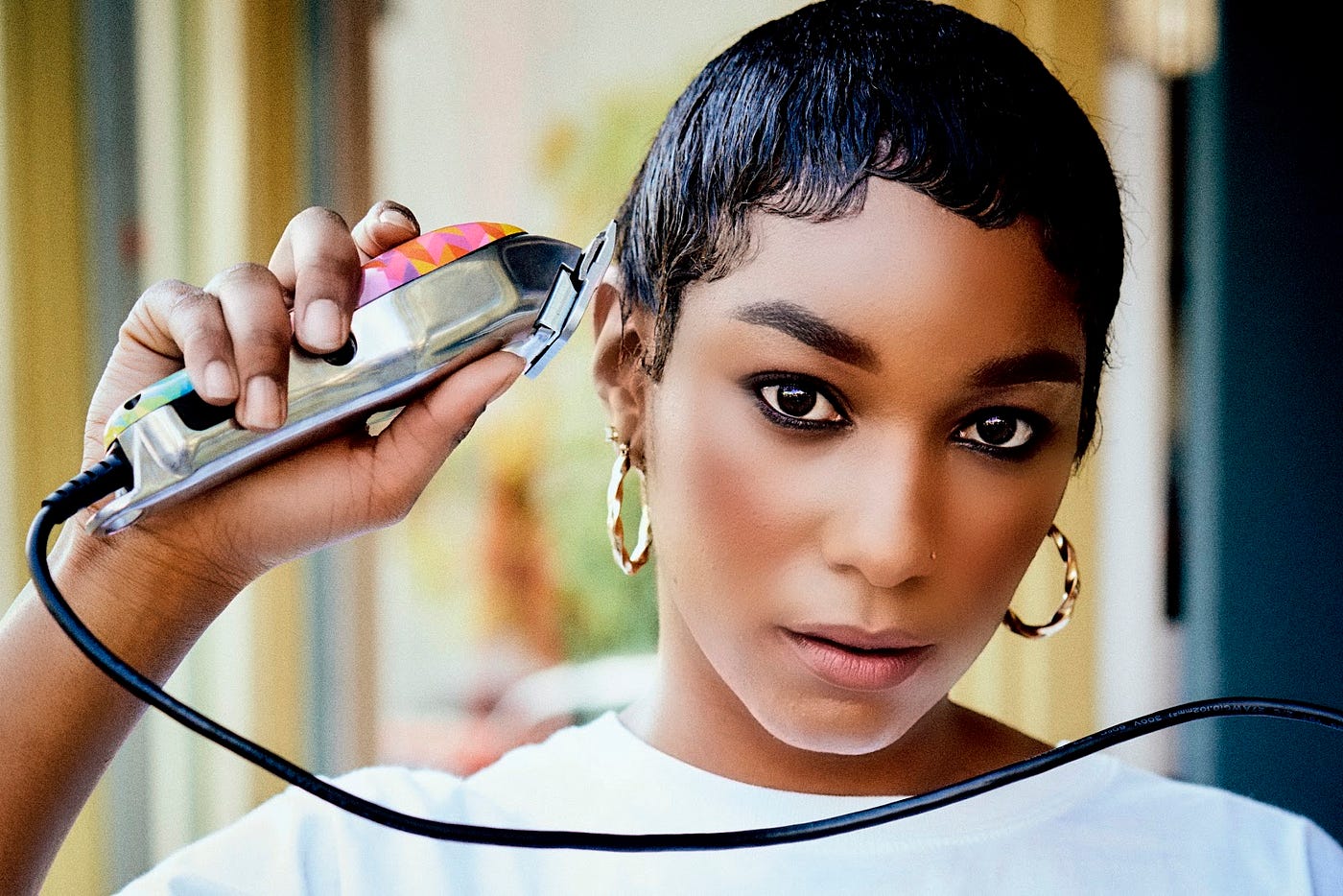
For Kourtnie Amin, shaving her head at age 18 marked a major life transition. She was fed up with choices she had made while being depressed and describes the cut as releasing control of her destiny and shining light on a new beginning.
From then on, Kourtnie allowed her hair to grow out, as she felt a transformation blossoming inside of her. Then, in 2017, her great-grandmother passed, sending her again into a depression. That hopeless feeling and lack of family support stirred a fire in Kourtnie and led her to cut her hair again. This time, she cut it with both tears and an overwhelming feeling of joy.
Cutting her hair has turned into an opportunity to reconnect with her soul.
This photo was taken in September around Old Oakland, and it gave Kourtnie the opportunity to retell that story of trauma, loss, and growth through her hair. We wanted her to gradually explore all those feelings she experienced, from shaving her head to growing it out to the newfound confidence she has discovered. Kourtnie explored what it felt like to be a young girl just coming to terms with her identity. We continued to let her express those emotions of struggle, loss, and her newfound confidence in her path as a model and dancer.
“A woman who changes her hair is about to change her life,” Kourtnie says.
Robin
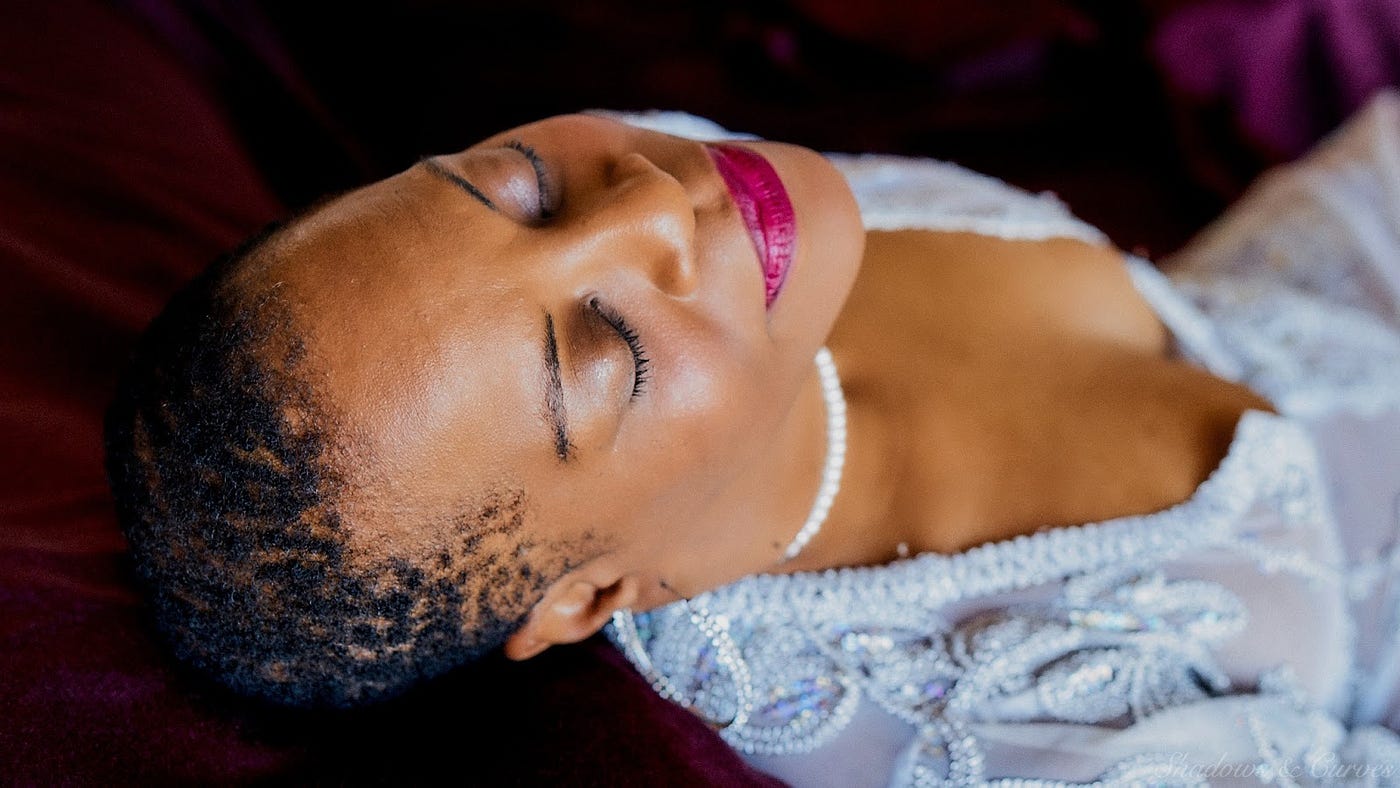
Robin Wilson-Beattie is a sex educator, speaker, and disability advocate based in San Francisco. People with disabilities are often seen as asexual or sexually incapable, even by medical professionals. Robin’s mission is to include people with all kinds of disabilities in the conversation around sexuality. As someone with both visible and invisible disabilities and who uses a walker and a cane for mobility, she has firsthand experience with the stereotypes and discrimination that disabled people face.
As part of her journey to embrace and love her body, Robin also decided to face the external and internalized racism around her natural short hair, which she had always covered with wigs. Encouraged by the Dora Milaje (the Wakandan royal bodyguards) in Black Panther, she decided to take the plunge.
In this shoot, Robin decided that she would let herself be photographed in her natural hair for the first time. However, she added a twist: She wanted to look sensual and sexy, not falling into the “fierce” stereotype that she feels is often used to deny Black women their femininity. The shoot helped Robin feel empowered and embrace all parts of herself, including her natural hair.
“I want to show that Black women with natural hair can be sexy and sensual, not just ‘fierce,’” Robin says.



